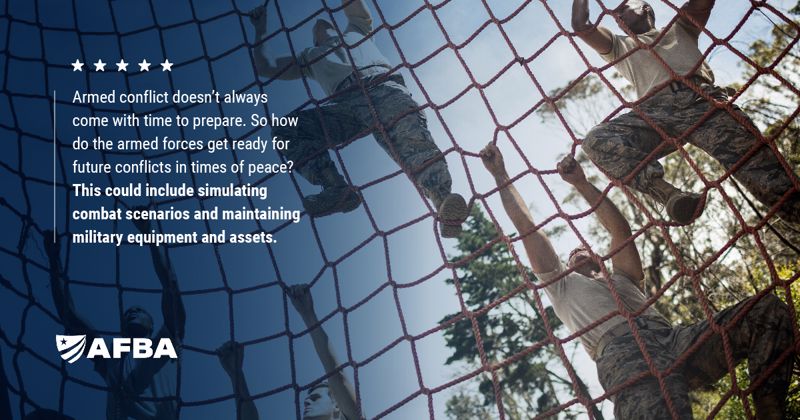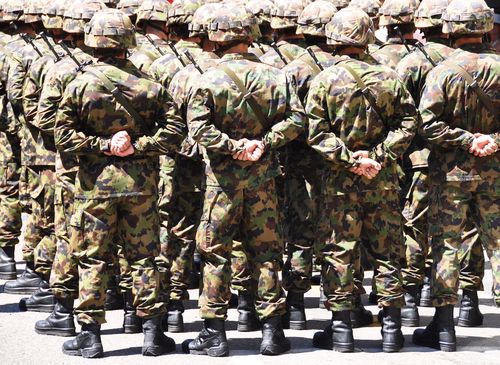When an enemy strike occurs, there is little time to prepare. The U.S. must remain prepared in case a strike happens to us or our allies. Many countries look to us for guidance and backup, which means it's our responsibility to keep a favorable posture when it comes to proper Armed Forces funding, training and advancement.
We'll explore how the U.S. is able to remain combat-ready.

Lying in Wait
The federal government's primary focus is to serve the people of America by protecting our safety and freedoms. There is an official policy highlighted for the Armed Forces called Military Operations Other Than War (MOOTW) for times when there isn't an active need for warfare, combat or threat of violence.
MOOTW is typically used in times of humanitarian aid, engineering, law enforcement, peacekeeping and disaster response. It's used to deter potential aggressors, protect U.S. interests and support the United Nations' (UN) objectives.
Armed Forces planners' prime objective during conflict is to resolve the situation and return to peaceful conditions. During peacetime, the nation can focus on basic objectives rather than defense and attack.
Training
Generally speaking, Armed Forces members who are not engaged in direct conflict spend their days training at either their home station or other locations around the world. Equipment maintenance and research is necessary during these "downtime" periods.
The Armed Forces must go through consistent times of upgrading including their facilities, drills, supplies, equipment and weapons. Success in warfare depends on preparation, so active duty servicemembers drill consistently, even after they understand their duties. This would include knowing where to be at certain times, what gear to grab and why they are there in the first place. There are times when there's no additional leadership during wartime, and soldiers should be ready.
Support
There are some instances where an Armed Forces regime is asked to support citizens in certain areas. This could include:
- Cleaning up and repairing after natural disasters.
- Assisting civil organizations like police and firefighters with heavy equipment.
- Testing new vehicles, weapons and options.
- Observing to prevent suspicious war activity.
- Cleaning up old conflict areas for weapons and debris.
- Acting as standby guard for internal fights, riots or revolts.
- Transporting helpful goods for civilians, such as food and supplies, after times of crisis.
- Blocking actions to prevent crises.
Family
When soldiers aren't actively on base and training, they're experiencing life just like everyone else. They're taking time to build their family, make memories and achieve personal goals one day at a time.
Being on base and in active deployment can take a lot of time and energy away from the other aspects of life. It's important to recover from what happened while on duty, while being present for the life still happening at home.
All in all, members of the Armed Forces live full lives during their career, and the aspects of their duties change along the way.

